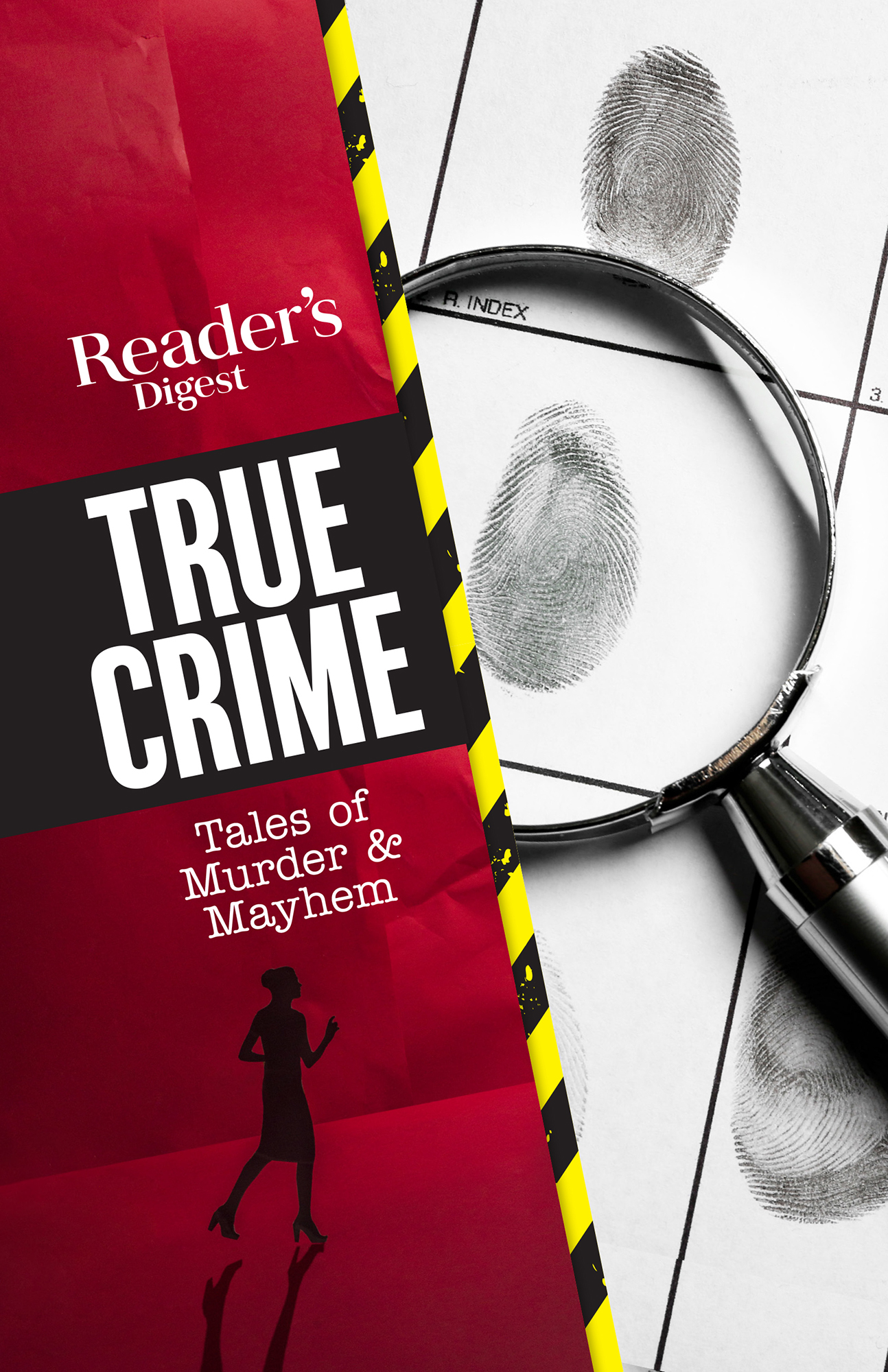Contents
Guide
INTRODUCTION
W hat turns a seemingly ordinary person into a cold-blooded killer? What makes some people lie, cheat, and steal to get what they want, while the vast majority of us play by lifes rules? This glimpse into the shadowy side of human nature is one reason true crime stories are inherently compelling. Were fascinated and repelled by the best criminal minds, so brilliant yet so twisted.
But true crime tales arent only about the heart of darkness. We want to see good triumph over evil, especially in real life. Thus, were also fascinated by clever and courageous crime fighters. Whats it like to be an FBI profiler or an undercover detective? How do they get inside a criminals head? And what about situations where crimes are stopped by just plain folks? What makes an average Joe or Josephine suddenly turn hero when observing wrongdoing? What makes a witness take the risk to become part of the process? And ultimately, what does it take to crack the case?
So many questions.
In their search for answers, true crime stories make for great reading. Over the years, Readers Digest has covered true crimes both large and small, and True Crime has them all: petty theft, serial killers, lottery scams, kidnappers, art heists, and, of course, the granddaddy of them all: crimes of passion. These 24 tales of murder and mayhem are guaranteed to surprise, shock, and fascinate as they offer a glimpse into the twisted minds of criminals and the dedicated crime fighters who catch them.

A KILLER IS LOOSE
by Joseph P. Blank
A s the residents of Jerseyville, a town of 7500 people in southwestern Illinois, started about their daily affairs on the mild, sunny Friday morning of October 9, 1969, alarming news wildfired among them: A cold-blooded killer was hiding somewhere in their area.
The twenty-one-year-old killer, James Gordon Palmer, was a Jerseyville man. Police Chief Herman Blackorby described him as a nice-looking, nice-talking boy who didnt mind killing you. In a ramble through Missouri, Illinois and Tennessee he had robbed and murdered a bait-shop owner, a young waitress and a filling-station attendant. He had fired bullets into the backs of their headsin the case of two of them, while they lay facedown on the flooruntil they stopped moving.
On the night of October 8, sheriffs deputies had spotted Palmer as he drove up to his Jerseyville apartment. He raced them to the outskirts of town, jumped from his car and escaped the cornfield. An hour later he shot and wounded a railroad brakeman shining a lantern near a ditch where he lay hidden.
Now more than a hundred police, state troopers and sheriffs deputies had converged on Jerseyville. They put bloodhounds around the spot where Palmer had fled, but the dogs couldnt pick up a scent. They patrolled all roads and searched hundreds of buildings. Each school bus carried an armed policeman. A helicopter and four small planes kept crisscrossing nearby farmlands. Radio broadcasters warned listeners to lock their doors. Police feared that Palmer might massacre an isolated farm family to steal a car. As the hours passed, the people of Jerseyville grew increasingly jumpy. By afternoon sporting-goods stores had sold out their supplies of guns and ammunition. Several farm families drove into town to stay at the hotel. One woman, hearing a noise in the basement, riddled her kitchen floor with buckshot.
In the squat brick building that housed the two office rooms of Gorman Brothers Construction Company on Franklin Street, business continued as usual. But that evening Louis Gorman found his wife and two children frightened. Gorman, a quiet and gentle man, fifty-two and graying, tried to reassure them. Palmer is probably well on his way to Mexico by now, he said.
Nevertheless, he slept restlessly. He arose before five, dressed and drove down to Sandys Caf, where he drank coffee and talked with two men from a posse that had searched for Palmer through the night. Then, shortly after seven, Gorman drove to the office. Two truck drivers, Charles Kroeschel and his son-in-law, Robert Cordes, arrived at the same time.
When Gorman put his key into the lock, he found it unlocked. He made a mental note to remind his men to check the doors before leaving at night. Entering the building, Gorman went to the washroom. He saw that the glass pane in the rear door had been broken and covered with cardboard, but he assumed that one of his men had broken the window on the previous day. Meanwhile, Charlie Kroeschel walked around the counter in the outer office, stepped into the inner officeand was confronted by a man pointing a .22-caliber semiautomatic rifle. Kroeschels mouth fell open. He backed away, repeating incredulously, Louie, hes here. That guy is here.
Palmer, tall, lean, blond, with a boyish face, said, Do as I tell you and you wont get killed. Sit down on the floor of the inside office and dont move. Kroeschel and Cordes obeyed.
Gorman, in the washroom, heard Kroeschels astonished words. Quickly he opened the washroom window, but he couldnt push out the screen. Palmer banged on the door and said, Are you coming out or will I have to shoot you through the door? Gorman came out.
Sit down with your buddies, Palmer directed, the asked the trio if the owner of the business was among them. Gorman answered. The killer nodded toward him and said, Open the safe, brother.
I cant, Gorman said. Its a tricky combination lock, and our office manager, Ernie Pohlman, is the only one who knows how to open it.
Brother, youre lying, Palmer said evenly. Ive got a notion to kill you right now. He moved his rifle.
Im not lying. Ernie will open the safe when he comes in. Gorman later admitted he was scared. He had no way of knowing at what point a twisted whim might prompt the killer to start shooting.
At that moment truck driver Edward Fitzgibbons drove his pickup to the back of the building. Palmer crouched behind the service counter. Fitzgibbons, noticing the broken pane in the rear door, ambled into the office saying, Hey, it looks like somebody broke in here.
Palmer rose from behind the counter, his gun leveled.
And Im still here, he announced. You just sit down on the floor there with your buddies. Fitzgibbons did so.
The next captive was William Kuehnel, a railroad engineer for the local freight line, who dropped in to tell Gorman that a car of cement had arrived. The engineer was followed by Herschel Andrews, a construction-equipment officer, and then truck driver Darrell Smith.
Ernie Pohlman was a little late that morning. Reluctant to leave his wife and three children in the house six miles out in the country, he had stayed to show his wife how to fire his shotgun. His first sensation when confronted by Palmer was relief: At least he knew his family was safe.
When Pohlman identified himself, Palmer said, Just the man. Open the safe, Ernie.
Pohlman knelt before the safe, which for a long time had been difficult to open. He twirled the knob. He failed on the first try. He failed again. In a warning tone Palmer said, Ernie! Again Pohlman muffed the combination. Palmer said, Ernie, Ill give you one more minute. If you dont open that safe, youre a dead man.
Take your time, Ernie, Gorman urged. A minutes a long time.







